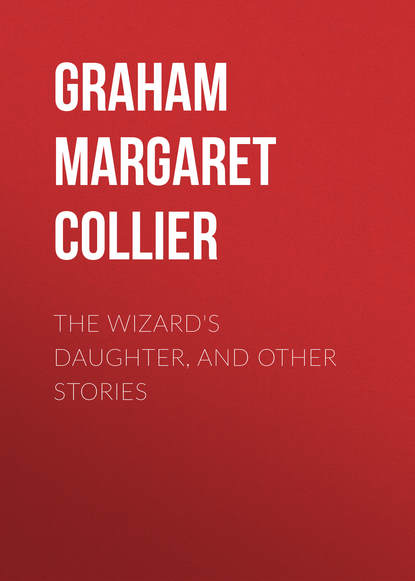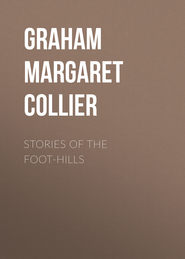По всем вопросам обращайтесь на: info@litportal.ru
(©) 2003-2024.
✖
The Wizard's Daughter, and Other Stories
Настройки чтения
Размер шрифта
Высота строк
Поля
"I errigated 'em more than usual this year, and it makes 'em kind of sloppy to eat," he apologized; "it doesn't help the flavor any, but most people buy for size. When you're out peddling and haven't time to cultivate, it's easy to turn on the water. It's about as bad as a milkman putting water in the milk, and I always feel mean about it. I tell mother errigating's a lazy man's way of farming, but she says water costs so much here she doesn't think it's cheating to sell it for peach-juice."
Rufus came into the room, and bore down upon the pair with deferential disdain. Mr. Anthony gave his fingers a parting wipe, and took the papers from the envelope.
"It's all right, Burson," he said after a little, "you needn't mind about your wife's signature. I'll risk it. Come back in about a week, say Thursday, Thursday at ten, if that suits you. I'll have my attorney look into it."
Burson got up and started out. Then he turned and stood still an instant.
"Of course, I mean to tell mother about the deed," he said; "I wouldn't want you to think" —
"Oh, certainly, certainly," acquiesced Mr. Anthony with an almost violent waiving of domestic confidence. "Good-afternoon, Mr. Burson." He whirled his revolving chair toward the desk with a distinct air of dismissal, and picked up the package of papers.
After the door closed he sat still for some time, looking thoughtfully at the mortgage; then he made a memorandum in ink, with his signature in full, and attached it to the document. Rufus opened the door.
"Mr. Darnell and two other gentlemen, suh."
The millionaire set his jaws. "Show them in, Rufus. Damn it," he said softly, – "damn it, why can't they be honest!"
"Do you mean to tell me, Erastus Burson, that you deeded him this place, and gave him your note for two hundred and fifty dollars you didn't owe him?"
"Why, no, mother; didn't I explain to you there'd be a deficiency judgment?"
"Well, I should say there was. But if anybody's lackin' judgment I'd say it was you, not him. The idea! Why he's as rich as cream, and you're as poor" —
"Well, his being rich and me being poor hasn't got anything to do with it, mother; we're just two men trying to be fair with each other, don't you see? You and the girls wouldn't want me to be close-fisted and overreachin', even if I am poor. I think we fixed it up just as near right as a wrong thing can be fixed. Of course I don't like to feel the way I do about Edmonson, but Mr. Anthony don't seem to lay up anything again him, and he's the one that has the right to. Edmonson treated him worse than anybody ever treated me. I don't know just how I'd feel toward a man if he'd treated me the way Edmonson treated Mr. Anthony."
Mrs. Burson laid the overalls she was mending across her knee in a suggestive attitude.
"I don't call it close-fisted or overreachin' to keep a roof over your family's head," she argued; "if the place isn't ours, I suppose we'll have to leave it."
"No; Mr. Anthony wants us to stay here, and take care of the place for the rent. I feel as if I'd ought to keep it up better, but if I'm to peddle fruit and try to pay off the note, I'll have to hustle. I want to do the square thing by him. He's certainly treated me white."
Mrs. Burson fitted a patch on the seat of the overalls, and flattened it down with rather unnecessarily vigorous slaps of her large hand.
"I wouldn't lose any sleep over Mr. Anthony; I guess he's able to take care of himself," she said, closing her lips suddenly as if to prevent the escape of less amicable sentiments.
"Well, he doesn't seem to be," urged her husband, "the way Edmonson's overreached him. My! but I'd hate to be in that fellow's shoes: doin' dirt to a man that a way!"
Mrs. Burson sighed audibly, and gave her husband a hopelessly uncomprehending look. "You do beat all, Erastus," she said wearily. "Here's your overalls. I guess you can be trusted with 'em. They're too much patched to give to Mr. Anthony."
Burson returned her look of uncomprehension. Fortunately the marital fog through which two pairs of eyes so often view each other is more likely to dull the outline of faults than of virtues. Mrs. Burson watched her husband not unfondly as he straddled into his overalls and left the room.
"A man doesn't have to be very sharp to get the better of Erastus," she said to herself, "but he has to be awful low down; and I s'pose there's plenty that is."
The winter came smilingly on, tantalizing the farmer with sunny indifference concerning drouth, and when he was quite despondent sending great purple clouds from the southeast to wash away his fears. By Christmas the early oranges were yellowing. There had been no frost, and Burson's old spring-wagon and unshapely but well-fed sorrel team made their daily round of the valley, and now and then he dropped into Mr. Anthony's office to make small payments on his note. Pitifully small they seemed to the mortgagee, who appeared nevertheless always glad to receive them, and gave orders to Rufus, much to that dignitary's disgust, that the fruit-vender should always be admitted. The handful of coin which he so cheerfully piled on the corner of the rich man's desk always remained there until his departure, when Mr. Anthony took an envelope from the safe, swept the payment into it without counting, and returned it to its compartment, making no indorsement on the note.
"I'd feel better satisfied if you'd drive out some time and take a look at things," said Burson to his creditor during one of these visits; "you'd ought to get out of the office now and then for your health."
"Maybe I will, Burson," replied the capitalist. "You're not away from home all the time?"
"Oh, no, but I s'pose Sunday's your day off; it's mine. Mother and the girls generally go to church, but I don't. I tell 'm I'll watch, and they can pray. I can't very well go," he added, making haste to counteract the possible shock from his irreverence; "there ain't but one seat in the fruit-wagon, and when the women folks get their togs on, three's about all that can ride. Come out any Sunday, and stay for dinner. We mostly have chicken."
The following Sunday Mr. Anthony drew up his daintily-stepping chestnut at the fruit-peddler's gate. Before he had descended from his shining road-wagon, his host ran down the walk, pulling on his shabby coat.
"Well, now, this is something like!" he exclaimed. "Got a hitching-strap? Just wait till I open the gate; I believe I'd better take your horse inside. There's a post by the kitchen door. My, ain't he a beauty!"
Burson led the roadster through the gate, and Mr. Anthony walked by his side. When the horse was tied, the two men went about the place, and Erastus showed his guest the poultry and fruit trees, commenting on the merits of Plymouth Rocks and White Leghorns as layers, and displaying modest pride in the condition of the orchard.
"I've kep' it up better this year. The rains come along more favorable and the weeds didn't get ahead of me the way they did last winter. Look out, there!" he cried, as Mr. Anthony laid his hand on the head of a Jersey calf that backed awkwardly from under his grasp. "Don't let her get a hold of your coat-tail; she chawed mine to a frazzle the other day; the girls pet her so much she has no manners."
When the tour of the little farm was finished the two men came back to the veranda, and Erastus drew a rocking-chair from the front room for his guest. It was hung with patchwork cushions of "crazy" design, but Mr. Anthony leaned his tired head against them in the sanest content.
"Now you just sit still a minute," Erastus said, "and I'm a-going to bring you something you hain't tasted for a long time."
He darted into the house, and returned with a pitcher and two glasses.
"Sweet cider!" he announced, with a triumphant smile. "I had a lot of apples in the fall, not big enough to peddle, – you know our apples ain't anything to brag of, – and I just rigged up a kind of hand-press in the back yard, and now and then I press out a pitcher of cider for Sunday. I never let it get the least bit hard; not that I don't like a little tang to it myself, but mother belongs to the W.C.T.U., and it'd worry her."
He darted into the house again, and emerged with a plate of brown twisted cakes.
"Mother usually makes cookies on Saturday, but I can't find anything but these doughnuts. Maybe they won't go bad with the cider."
He poured his guest a glass, and Mr. Anthony drank it, holding a doughnut in one hand, and partaking of it with evident relish.
"It's good, Burson," he said. "May I have another glass and another doughnut?"
His host's countenance fairly shone with delighted hospitality as he replenished the empty glass. There were crumbs on the floor when the visitor left, and flies buzzed about the empty plate and pitcher as Mrs. Burson and her daughters came up the steps.
"Mr. Anthony's been here," said Erastus cheerfully; "I'm awful sorry you missed him. We had some cider and doughnuts."
The three women stopped suddenly, and stared at the speaker.
"Why, Paw Burson!" ejaculated the elder daughter, "did you give Mr. Anthony doughnuts and cider out here on this porch?"
"Why, yes, Millie," apologized the father; "I looked for cookies, but I couldn't find any. He said he liked doughnuts, and he did seem to relish 'em; he eat several."
"That awful rich man! Why, Paw Burson!"
The young woman gave an awe-stricken glance about her, as if expecting to discover some lingering traces of wealth.
"Doughnuts!" she repeated helplessly.
"Why, Millie," faltered the father, mildly aggressive, "I don't see why being rich should take away a man's appetite; I'm sure I hope I'll never be too rich to like doughnuts and cider."
"Didn't you give him a napkin, paw?" queried the younger girl.
"No," said the father meekly, "he had his handkerchief. I coaxed him to stay to dinner, but he couldn't; and I asked him to drive out some day with his wife and daughter – he hasn't but one – they lost a little girl when she was seven" —
The man's voice quivered on the last word, and died away. Mrs. Burson went hurriedly into the house. She reappeared at the door in a few minutes without her bonnet.






